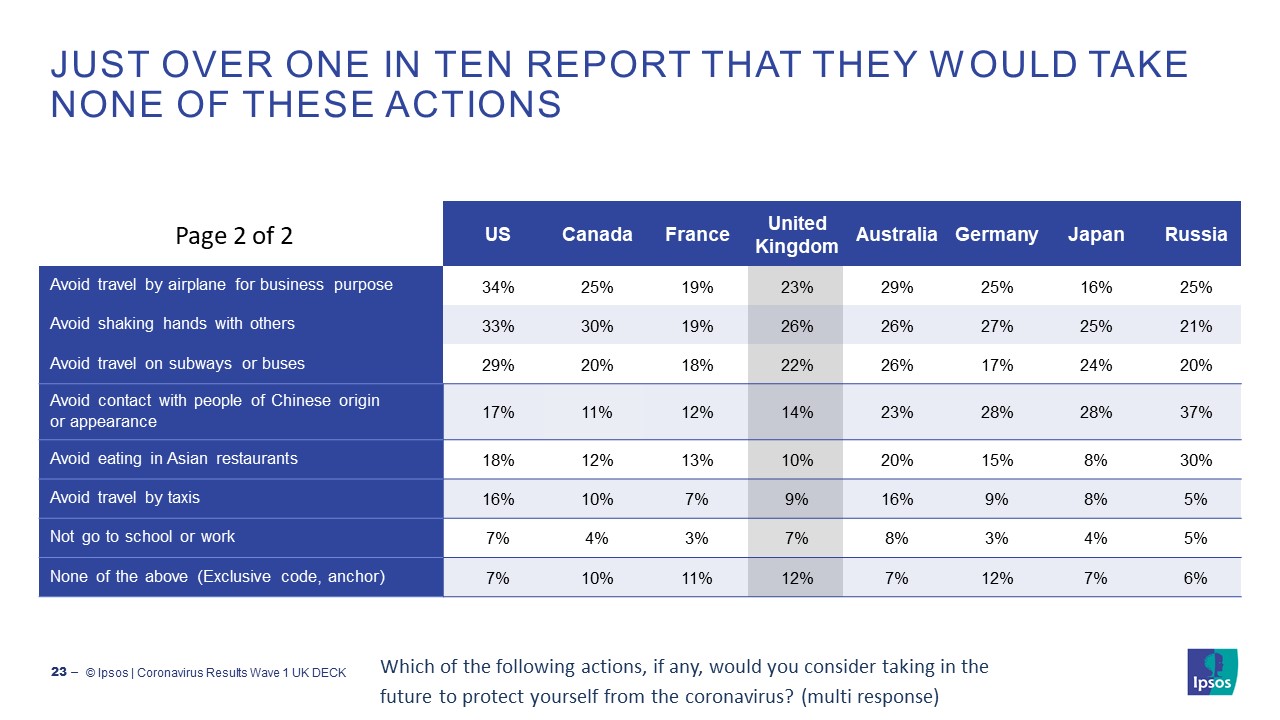COVID-19 – One in seven people would avoid people of Chinese origin or appearance
A new global poll by Ipsos shows the extent to which the UK public may change their behaviours because of the threat of the virus, including 14% saying they would avoid contact with people of Chinese origin or appearance.
The threat of COVID-19 could have a significant impact on the UK public’s behaviour, according to an Ipsos survey conducted online from February 7 to 9, 2020 among 8,001 adults aged 16 (18) -74 in Australia, Canada, France, Germany, Japan, Russia, the United Kingdom, and the United States.
Two-thirds of people in the UK say they would consider avoiding travelling to infected countries or areas (65%), while three in ten would avoid large gatherings of people or travelling by air for holidays (both 29%). A quarter say they would avoid shaking hands with others (26%), and one in five say they would avoid travelling by public transport (22%).

The survey also shows the potential longer-term impact of the virus. Over three-quarters of the UK public believe that people will be less likely to travel to China (77%), while three in five think that major international events like the Olympics could be in jeopardy (60%).
While the UK public are concerned about the long-term impact of the virus, they do have confidence in many of the organisations tasked with dealing with it. Confidence is highest in local health services, health professionals and the World Health Organization (all 71%).
Full results and our findings on the perceived threat to world, can be found on the Ipsos website.
Ben Page, CEO Ipsos says:
Our research shows that there is a high level of awareness of the COVID-19 outbreak and a belief that we have some way to go before it is contained. High levels of concern are likely to be the driver for the behaviour changes people are considering.
It is, however, encouraging that there are also high levels of trust in the health services and professionals in the UK to deal with it effectively.




